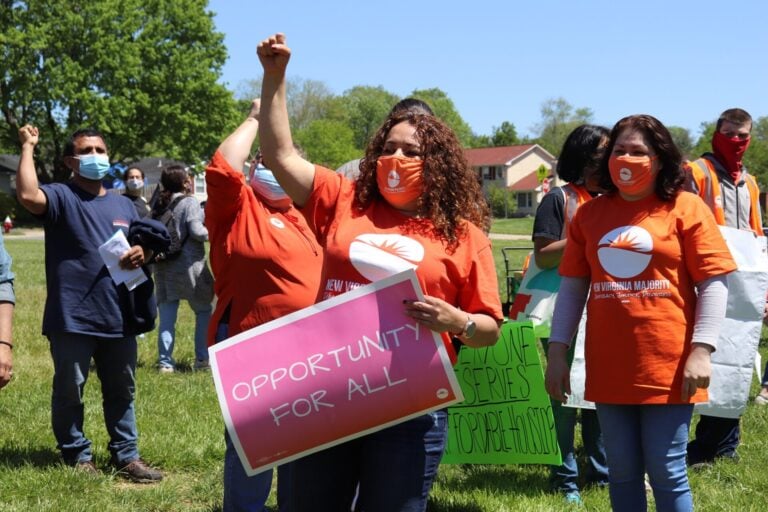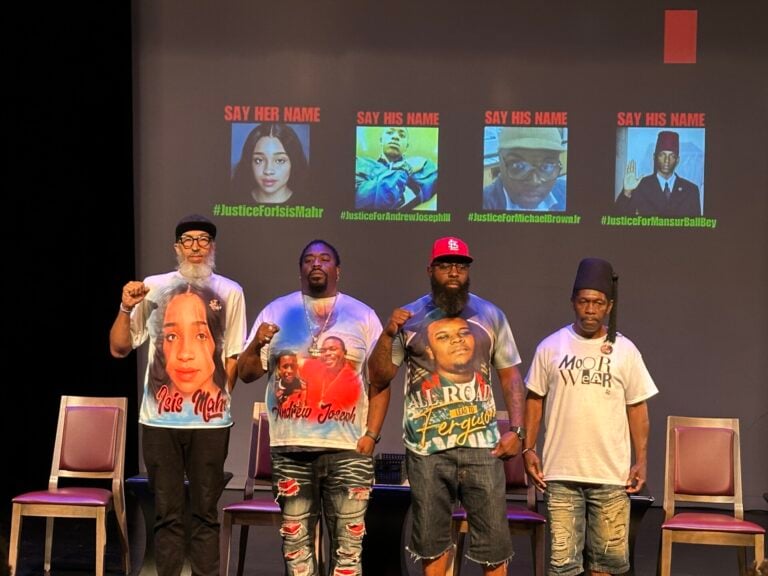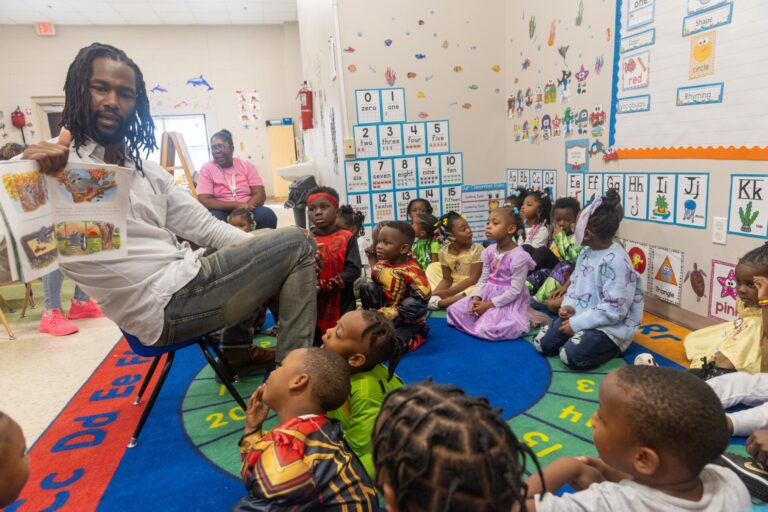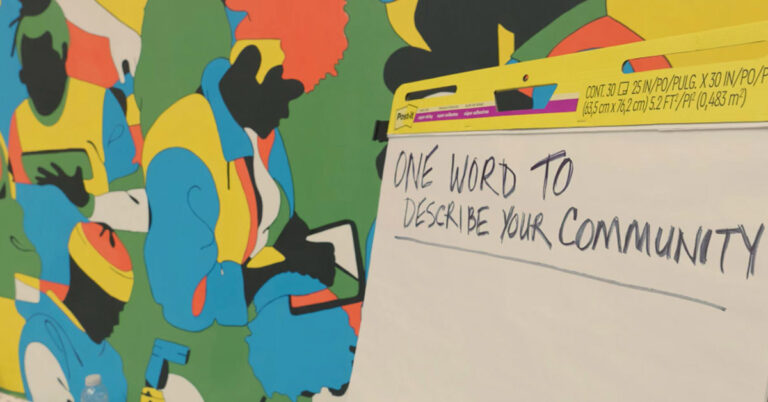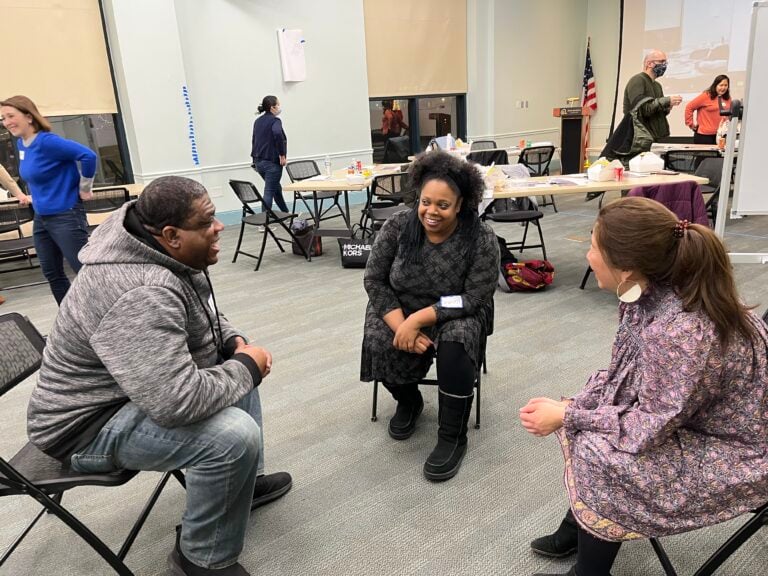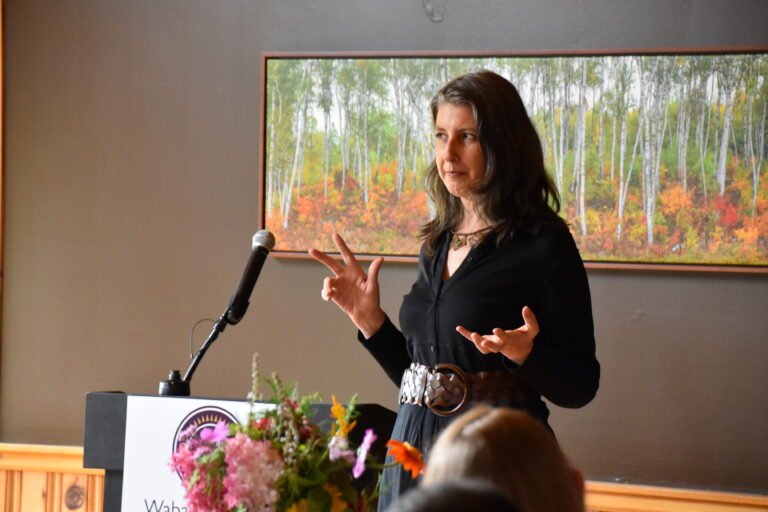A few days into my appointment as president and CEO of a brand-new 501(c)(4) foundation serving the beautiful state of Washington, I had a defining conversation with our team.
It was about how we would approach our work together. What were the values that would guide us? What commitments would we make? How would we know we are succeeding? We knew that as a new $2-billion foundation, we had the rare opportunity to start from scratch and to truly listen to the people most excluded by philanthropy. We knew that for us to deliver something different for the people of Washington, we would move forward with two truths.
First, that change in Washington is not possible without the leadership of people of color, immigrants, people with disabilities, the LGBTQ+ community, folks experiencing poverty, and the many who hold several of these identities. Second, if we were serious about serving the entire state, if we wanted to truly reflect and be responsive to communities, it would only happen through sustained relationship-building everywhere.

Written before the funder changed its name to Inatai, this report includes lessons from visiting communities in all of Washington’s 39 counties.
Our small team of five hit the road to meet as many community leaders as possible. In my first 18 months, I had the joy and privilege of zigzagging across Washington, visiting all 39 counties — for some, several times. We picked up every local newspaper we could find to learn about the organizations and people we could connect with. We scoured Facebook to see who was leading formally and informally. We shared meals with leaders of tribal nations and other communities of color who lived in neighborhoods, counties, and regions that were often ignored by institutions like ours.
To say we were changed by those we met was an understatement; we were transformed. What we learned in these first visits fundamentally shaped who we are today. Inatai had a better understanding of what it meant to be a “statewide” funder. No matter where you are or who you serve, we hope our lessons will resonate with foundations of any state or region.
Interrogate assumptions
Too often, philanthropy operates on assumptions that prevent us from realizing our purpose. Even before our team began our community visits, institutional leaders in the Seattle area had a warning for us: People east of the mountains don’t want to talk about racism. Yet, in nearly every place we visited, people openly talked about how racism has impacted their lives.
In our time with Black, Indigenous, Latinx, Asian, and Pasifika leaders, one narrative in particular was named as a barrier to their work. It was the prevailing perception that Washington is a white state, and that people of color only lived in big cities. Everywhere outside of Seattle was deemed rural, conservative, and in so many code words: “backwards.” Native people were talked about in past tense and not as communities who hold power in their own right. The truth is, Washington is a diverse state where 41 percent of residents identify as people of color and/or immigrants, including more than half of K-12 students. The truth is, in one county, Tribal nations are the largest employer, and not just for Native people, but among all county residents. In every single region, there are organizations that are protecting the rights of queer and transgender people, mobilizing farm workers, fighting against carceral solutions, building a multiracial democracy, and pursuing many other efforts that add up to a different future for all of us.
The false narrative about our state is dangerous because it gives philanthropy an excuse to continue making decisions with inequitable consequences. It suggests we should abandon people — even if they are values-aligned — just because they live in politically inconvenient areas. Shouldn’t these be the very places we should be pouring our energy and resources into? This question is not unique to Washington. These are conversations happening across the country among funders and organizations advocating for their communities.
We picked up every local newspaper we could find to learn about the organizations and people we could connect with. We scoured Facebook to see who was leading formally and informally. We shared meals with leaders of tribal nations and other communities of color who lived in neighborhoods, counties, and regions that were often ignored by institutions like ours.
Lean into lived expertise
As we forged relationships with community leaders and organizations throughout Washington, we also looked inward with a similar question: Who is worthy of a foundation job? There is a certain pedigree, a certain look, and a certain prestige when it comes to who holds positions in our field. We weren’t interested in any of that.
What we are interested in is hiring people who reflect the people we are accountable to and have expertise in delivering change with communities. It is no coincidence that people with the deepest expertise on how to advance equity and racial justice also are representative of the state’s beautiful tapestry. Their lived experiences are shaped by factors including race, ethnicity, gender, immigration status, sexual orientation, and status related to public assistance, the justice system, and disability. If you browse any of our open job listings, you’ll find that philanthropy experience is not a requirement, and that we prioritize candidates who are connected to and live in certain Washington counties that are currently underrepresented on our team. We rarely recruit out of state.
We operate this way because grantee organizations have asked us to. I’m a little embarrassed to admit that when I first took this role, I assumed we’d only have an office and team in Seattle and perhaps that was sufficient to serve this vast state. I quickly learned I was wrong. Community leaders shared they value a local connection with funders to deepen relationships. Now, we know that to call ourselves statewide we must hire a team statewide. In addition to Seattle, we have an office in Pasco, and team members working remotely in more than a third of the state’s counties. This approach extends to how we recruit board members, where we host meetings and convenings, where and with whom we spend our dollars, and of course, where we make grants.
Relationship-building is not one and done
After those first 18 months on the road, one thing was clear: relationship-building, listening, and learning will be our forever work as a foundation. Our entire team still spends a good amount of our time traveling, meeting with community leaders, and taking time to learn about the issues that impact our state. Our goal is to have direct relationships with community leaders, not so we can call ourselves an expert in every community, but to know the experts in every community. To us, this is the work. Our strategies are strong only because of it.
We are kicking off our 50-Year Vision this next year, our long-term work that was informed by thousands of community visits, grant reports, conversations with community leaders, and reflections gathered at our convenings. It took six years for us to arrive at this point, and I would not have done it any other way. Yes, some critiqued us for not having a strategy from year one, but we were unwavering in our belief that we could not be the partner communities and leaders were asking for without authentic community relationships. Developing trust takes time and in the long arc of our work to transform the balance of power in Washington to ensure equity and racial justice, six years is a blink of the eye.
What we’ve been able to do so far is because we took time to listen and learn. If you read our latest annual report, it shows that in 2023 we funded organizations in 35 out of 39 counties and committed grants to 20 Tribal nations. More than 78 percent of the organizations we supported are led by people of color. Funding is not the only measure by which we keep track of our statewide approach. We supported a wide range of convenings held across Washington in direct response to grantee feedback saying Inatai is uniquely positioned to facilitate connections among leaders and organizations all over the state.
This fall marks my sixth anniversary at Inatai, and I am so incredibly proud of what our team has built together. We have grown to more than 60 people, updated our values and mission statement, reintroduced ourselves with a new name, and granted a grand total of $264 million to diverse organizations throughout the state. Each and every one of these decisions was an intentional choice, underlined by what we learned through our relationship-building with the communities we are accountable to.
About the author:


